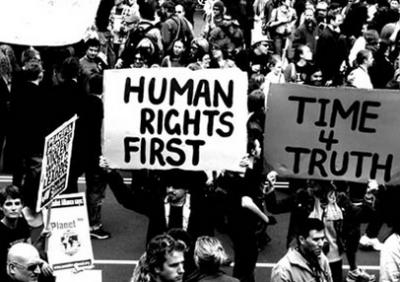Glossary of productive play
Term Template
In a sentence
Definition
Context
Who said it
Mentioned in
See also
Counterculture

Definition (a) "A counterculture is a culture whose values and norms of behavior differ substantially from those of mainstream society, sometimes diametrically opposed to mainstream cultural mores. A countercultural movement expresses the ethos and aspirations of a specific population during a well-defined era." [wiki] (b) countercultures often are of dissenting character in relation to the established superstructure/ruling ideologies. They become part of the popular culture or fully integrated to culture after revolutionary actions or activist actions, consistent and confident defiance of established "rules". Counter culture can also purposefully present themselves as disturbances of defiance of any current stream (may they cross as certain times) as way to protest, as emancipation or contestation.
In context (1) (a) one famous counterculture is the hippy movement from the 60s-70s which was demonstrated by very defying aesthetically "divergent" hair features, sexual liberation, eye-catching fashion and uprisal against the dominant political/social structures. (b) nowadays the queer community holds some of the keys to one of the main counterculture stream, where gender defaults are refuted, social norms re-evaluated and contested, communal cohesion starts with individual expression and affirmation, diversity first and foremost. Feminism has shared platforms between counter- and mainstream culture, where different aspects have been shared, when the queer community has always mainly evolved on the side-lines, it is now coming more and more in the main cultural streams. (c) mainstream culture uses countercultures as fashionable ideologies on and off, but counterculture also makes use of mainstream society to vehiculate ideologies (pop culture, artists like Lady Gaga, channels counter-communities within mainstream medias). “Born this way” has been the rallying cry of the mainstream gay rights movement [[1]]
In context (2)
See Fred Turner's From Counterculture to Cyberculture: Stewart Brand, the Whole Earth Network, and the Rise of Digital Utopianism (2008), which charts how the [(left)Libertarian] values of the US 1960s counterculture (hippy communes, experiments with LSD &c) are taken up by the big tec companies ; so a lot of the 'freedom' rhetoric on the internet in the 2000s is related to the US 60s counterculture movement. The model for the network is provided by The. Whole Earth Catalog (1968) which advanced freedom via "access to tools"
In a sentence Counterculture stands in opposition to the mainstream society until it gets incorporated within the mainstream society, mostly arises from social/political divergences/conflicts/defiance.
See also Counterhegemony and Mainstream
Click farm
A form of click fraud where a large group of low-paid workers are hired to click on paid advertising links for the click farmer. The workers click the links, surf the target website for a period of time, and possibly sign up for newsletters prior to clicking another link. It is extremely difficult for an automated filter to detect this simulated traffic as fake because the visitor behavior appears exactly the same as that of an actual legitimate visitor.
Context
Click farms are used by all sorts of businesses, often to inflate their following or engagement, and they can be hired to do multiple actions such as:
Services offered by click farms can include:
- Social media followers and likes
- Posting comments on websites or social media
- Generating website traffic
- Creating backlinks
- Carrying out repetitive click based tasks
- Channelling traffic to fraudulent sites to increase rankings, domain authority or to collect payouts on display ads
- Sharing , often fake, news articles (troll factories)*
With the majority of the world’s click farms based in countries with minimal employment and labour laws, their main legal issues are around employee rights, working conditions and wages.
In a sentence
As online engagement became currency, click farms exploit workers in order to mass produce fraudulent user interactions.
Who said it
Lee Munson
Mentioned in
See also Term
Fan culture/fandom
A fandom is a subculture composed of fans characterized by a feeling of empathy and camaraderie with others who share a common interest. Fans typically are interested in even minor details of the objects of their fandom and spend a significant portion of their time and energy involved with their interest, often as a part of a social network with particular practices, differentiating fandom-affiliated people from those with only a casual interest. [Wiki]
The history of the word “fandom” starts with a very old word — “fanatic.” “Fanatic” arose out of a Latin word, “fānāticus,” which, in turn, came from the word “fanum,” meaning “temple” or “shrine". In the late 19th-century, the word "fan" started to be used to describe an enthousiast of a certain sports team.
Mentioned in:
- "On productivity and game fandom" by Hanna Wirman
- “Textual Poachers: Television Fan & Participatory Culture” by Henry Jenkins
In context: Members of a fandom associate with one another and build a community around their fan interest (e.g.: celebrities, hobbies, genres, fashion, ...). A fan culture often includes fan activities such as conventions, writing fan fictions, participating in fan online forums and discussions, purchasing merchandise and collector items, etc. Some of the largest fandoms are the Harry Potter fandom, Anime fandom and the BTS army (BTS is a K-Pop group).
In a sentence: A fandom is a subgroup of fans that share a common interest.
